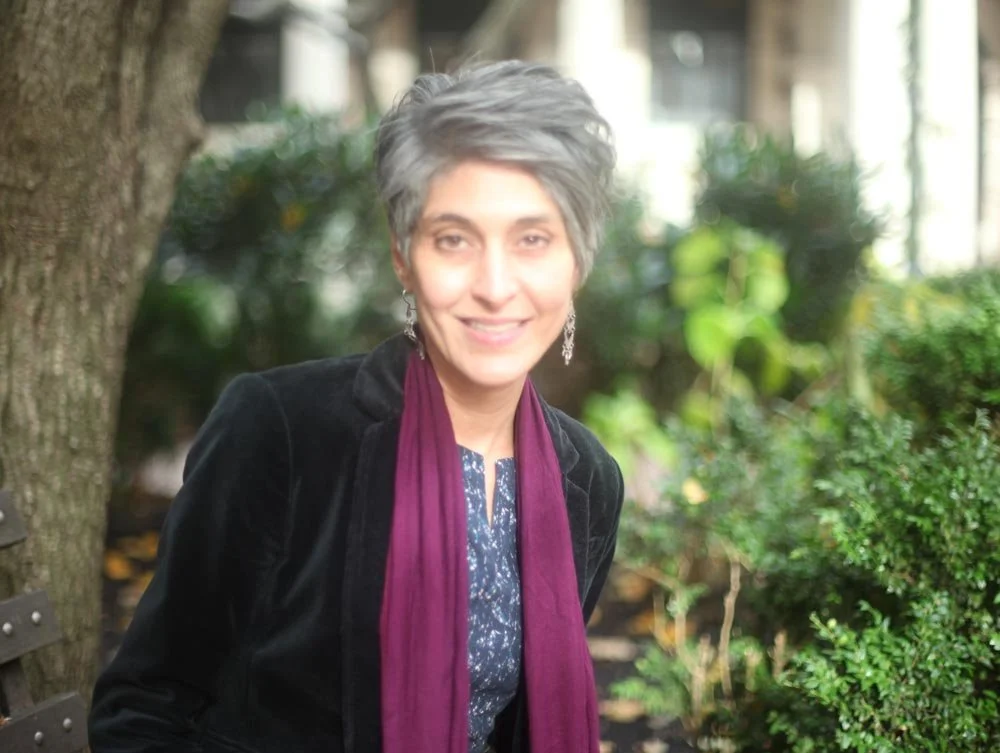These episodes include statements of solidarity with the Palestinian people from activists, scholars, and cultural workers from around the world. We begin with a powerful statement from the University Union of Professors and Employees Occupied Palestine. Next is activist and scholar Cynthia Franklin, a long-time champion for Palestinian and other Indigenous peoples’ rights. Next is celebrated feminist scholar, philosopher, and public intellectual Sara Ahmed. After Sara Ahmed we hear a statement from Michael Hardt, eminent political philosopher and writer. After him we hear from the award-winning poet, scholar and long-time civil rights and anti-Zionist Hilton Obenzinger.
He is followed by legendary abolitionist feminist activist, writer, and scholar Angela Y. Davis. Following Angela Davis we have a statement from the Raha Iranian Feminist Collective read by scholar Manijeh Moradian. Following her is a statement from the Palestine Writes Literary Festival, read by executive director and celebrated novelist, Susan Albuhawa. We end with renowned Michi Saagiig Nishnaabeg scholar, writer, and artist Leanne Betasamosake Simpson, who has been widely recognized as one of the most compelling Indigenous voices of her generation.
You can listen here and learn more about these contributors on this blog.
In this episode of the Speaking Out of Place podcast, Professor David Palumbo-Liu interviews with Palestinian American poet and physician Fady Joudah. Health authorities in Gaza report more than ten thousand deaths in a population where 60 percent are under the age of 18. The United Nations General Assembly has just overwhelmingly passed a resolution demanding the “protection of civilians and [the]
photo credit: Cybele Knowles
upholding [of] legal and humanitarian obligations.” The Assembly, also demanded that all parties “immediately and fully comply” with obligations under international humanitarian and human rights laws, “particularly in regard to the protection of civilians and civilian objects.”
Fady Joudah’s poetry has always addressed the situation of the Palestinians in Israel, in the Occupied Territories, and in diaspora, managing somehow to capture both the political and the personal, and above all the courage and humanity of the Palestinian people. We speak in particular about his recent LitHub piece, “A Palestinian Meditation in a Time of Annihilation: Thirteen Maqams for an Afterlife.” We are honored that he made time in this period of crisis to speak with us.
In this episode of the Speaking Out of Place podcast, Professor David Palumbo-Liu and Azeezah Kanji talk with Diana Buttu and Richard Falk. The volatile situation in Gaza has been grossly distorted in the mainstream western press. By omission, selective editorializing, and misstatement of so-called “facts,” a particular caricature has emerged that has invisibilized the Palestinian people, the history and the nature of the Occupation, and the actual conditions of life in what many have called the world’s largest open air prison.
Diana Buttu Haifa-based analyst, former legal advisor to Palestine Liberation Organization and Palestinian negotiators, and Policy Advisor to Al-Shabaka: The Palestinian Policy Network. She was also recently a fellow at the Belfer Center for Science and International Affairs at Harvard's Kennedy School of Government.
After earning a law degree from Queen's University in Canada and a Masters of Law from Stanford University, Buttu moved to Palestine in 2000. Shortly after her arrival, the second Intifada began and she took a position with the Negotiations Support Unit of the PLO.
Richard Falk is Albert G. Milbank Professor Emeritus of International Law at Princeton University (1961-2001) and Chair of Global Law, Faculty of Law, Queen Mary University London. Since 2002 has been a Research Fellow at the Orfalea Center of Global and International Studies at the University of California, Santa Barbara. Between 2008 and 2014 he served as UN Special Rapporteur on Israeli Violations of Human Rights in Occupied Palestine.
Falk has advocated and written widely about ‘nations’ that are captive within existing states, including Palestine, Kashmir, Western Sahara, Catalonia, Dombas.
He is Senior Vice President of the Nuclear Age Peace Foundation, having served for seven years as Chair of its Board. He is Chair of the Board of Trustees of Euro-Med Human Rights Monitor. He is co-director of the Centre of Climate Crime, QMUL.
Falk has been nominated for the Nobel Peace Prize several times since 2008.
His recent books include (Re)Imagining Humane Global Governance (2014), Power Shift: The New Global Order (2016), Palestine Horizon: Toward a Just Peace (2017), Revisiting the Vietnam War (ed. Stefan Andersson, 2017), On Nuclear Weapons: Denuclearization, Demilitarization and Disarmament (ed. Stefan Andersson & Curt Dahlgren, 2019.
*
Speaking Out of Place, which carries on the spirit of Palumbo-Liu’s book of the same title, argues against the notion that we are voiceless and powerless, and that we need politicians and pundits and experts to speak for us.
Judith Butler on Speaking Out of Place:
“In this work we see how every critical analysis of homelessness, displacement, internment, violence, and exploitation is countered by emergent and intensifying social movements that move beyond national borders to the ideal of a planetary alliance. As an activist and a scholar, Palumbo-Liu shows us what vigilance means in these times. This book takes us through the wretched landscape of our world to the ideals of social transformation, calling for a place, the planet, where collective passions can bring about a true and radical democracy.”
David Palumbo-Liu is the Louise Hewlett Nixon Professor and Professor of Comparative Literature at Stanford University. He has written widely on issues of literary criticism and theory, culture and society, race, ethnicity and indigeneity, human rights, and environmental justice. His books include The Deliverance of Others: Reading Literature in a Global Age, and Speaking Out of Place: Getting Our Political Voices Back. His writing has appeared in The Washington Post, The Guardian, The Nation, Al Jazeera, Jacobin, Truthout, and other venues. Twitter @palumboliu
Apple Podcasts · Spotify · Website





















































